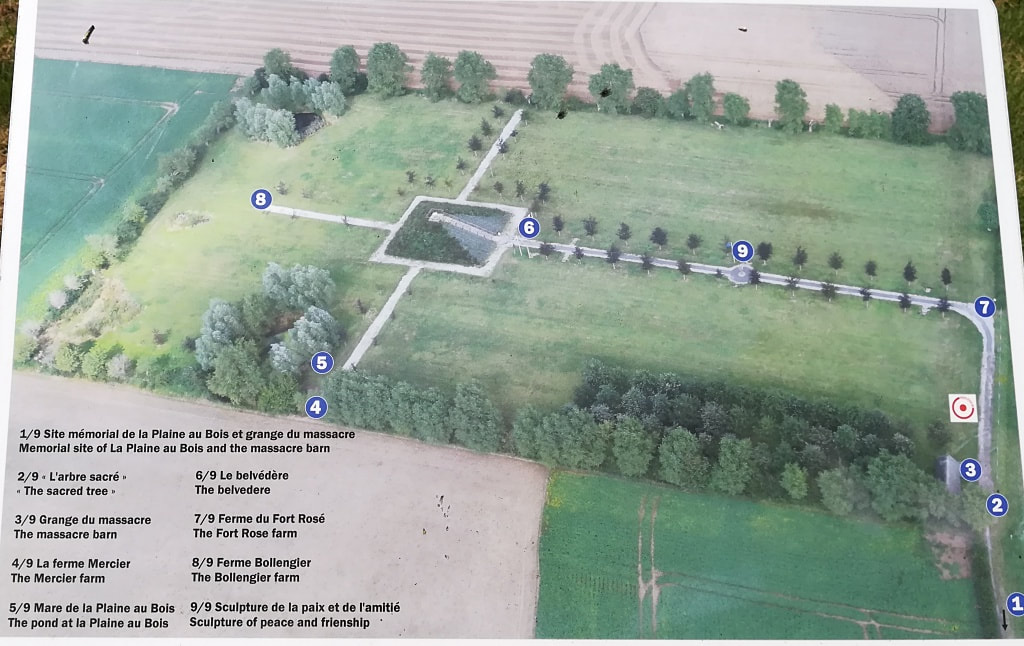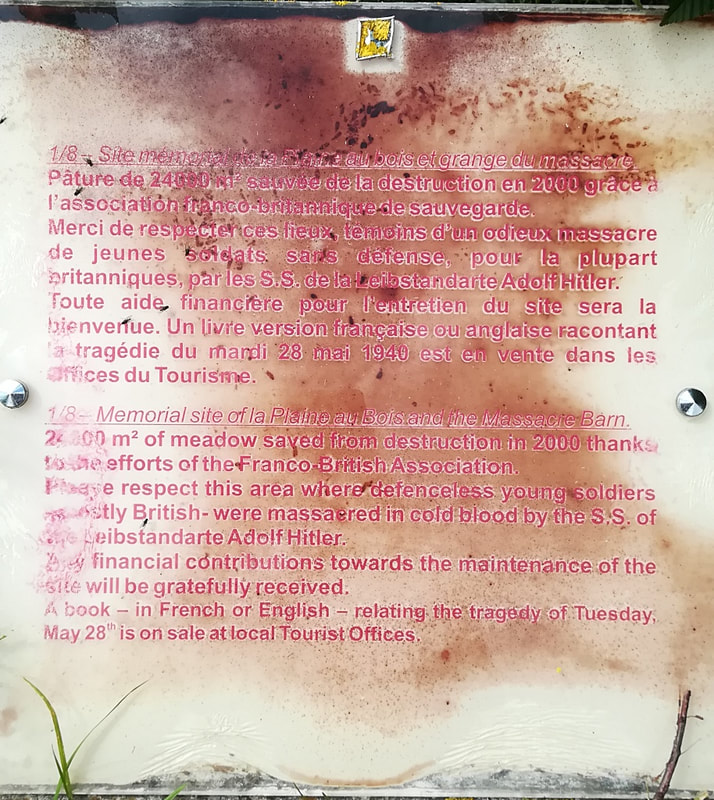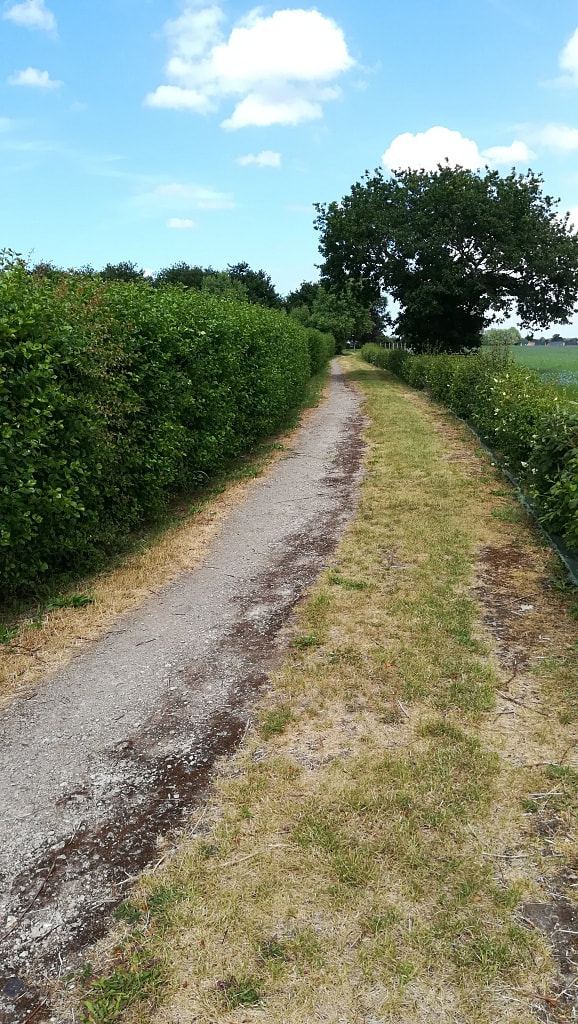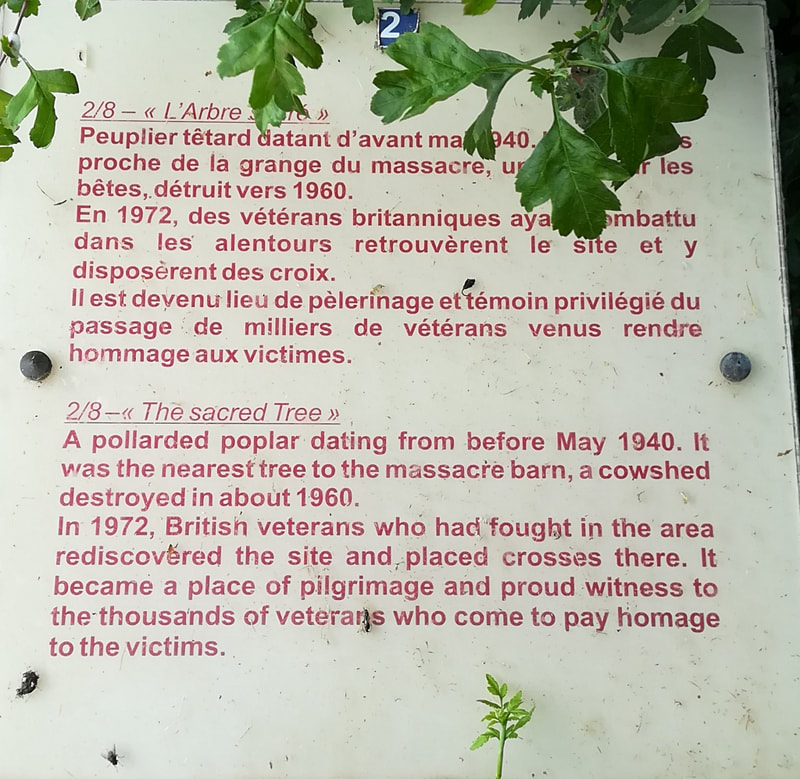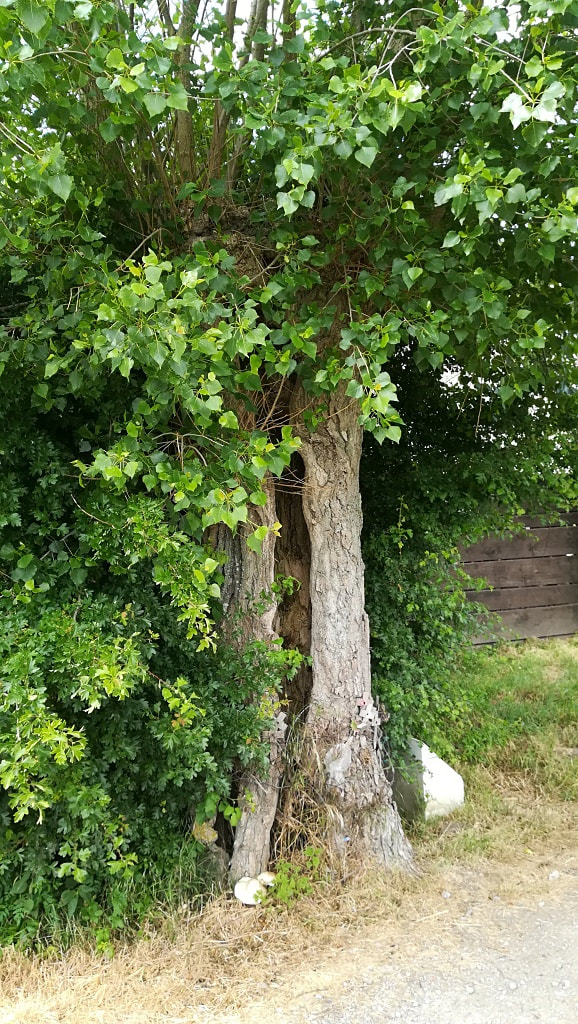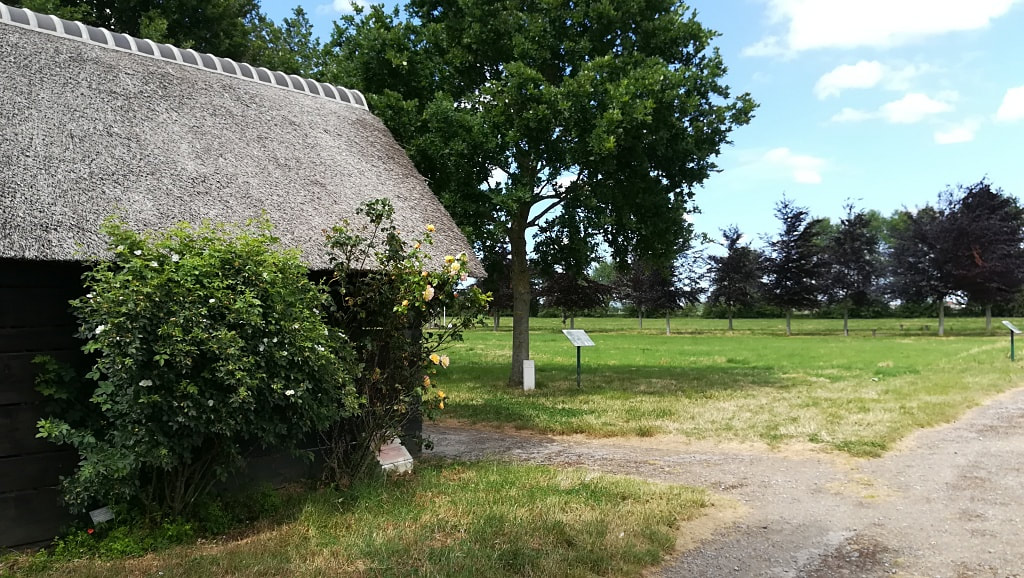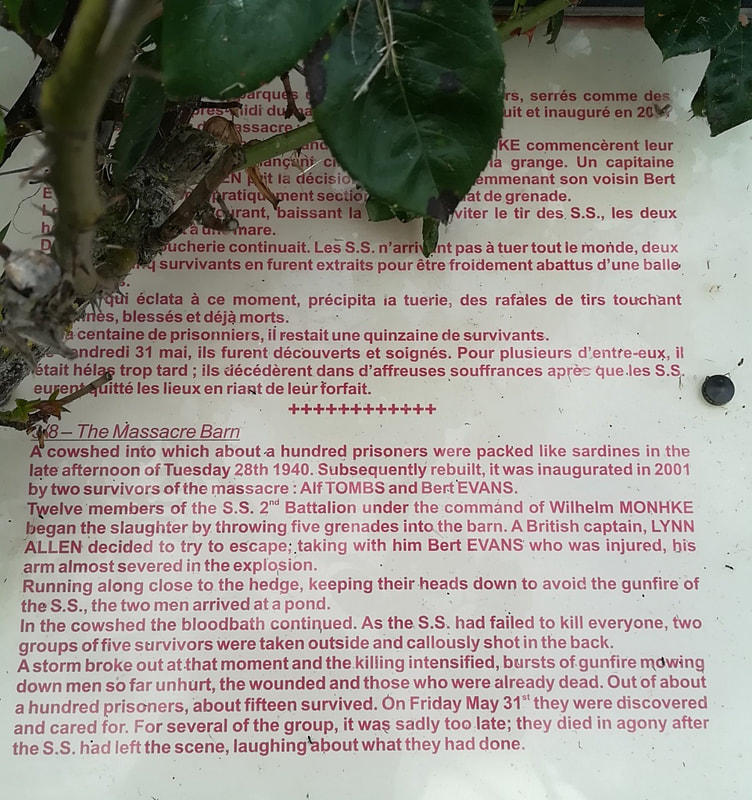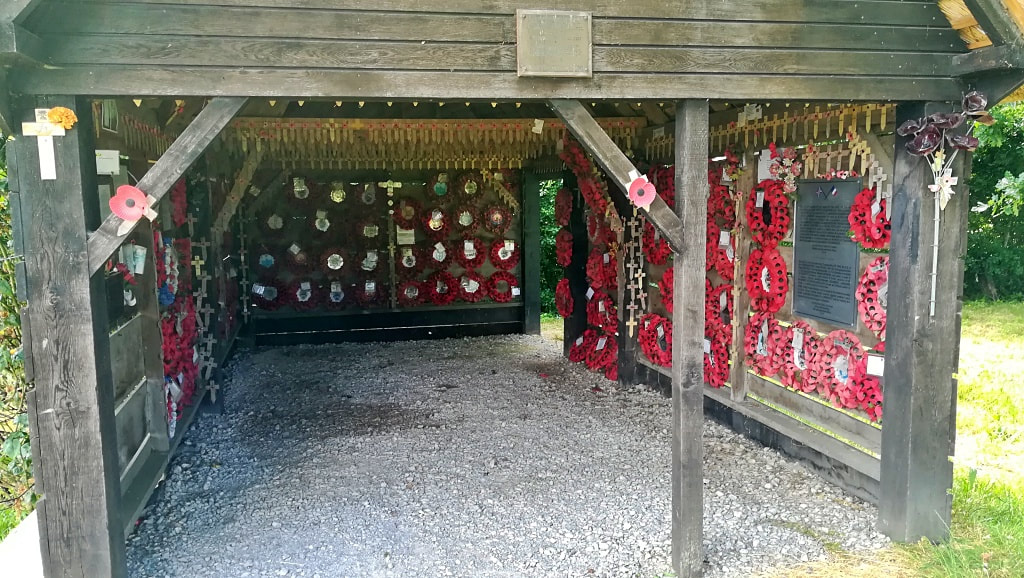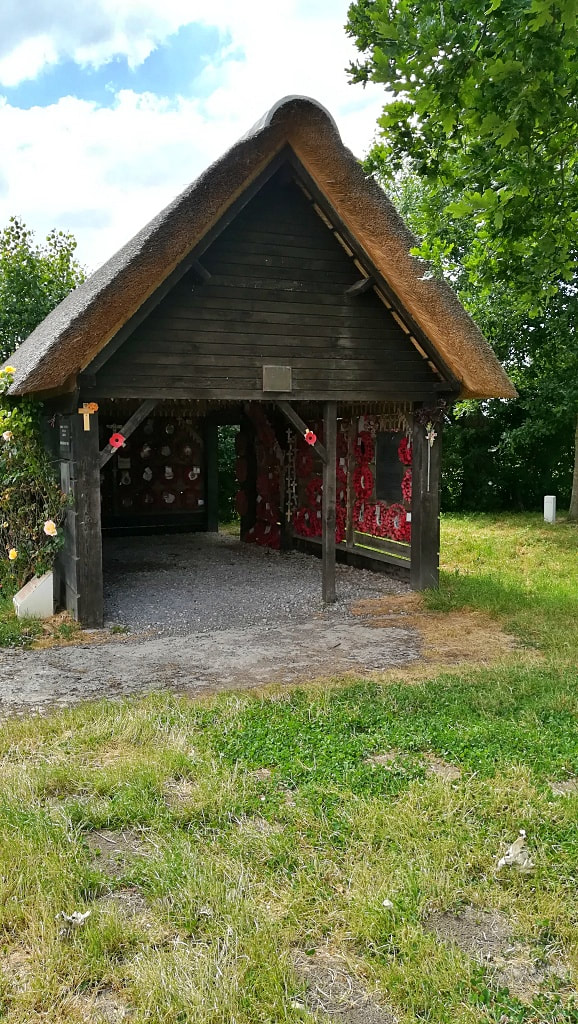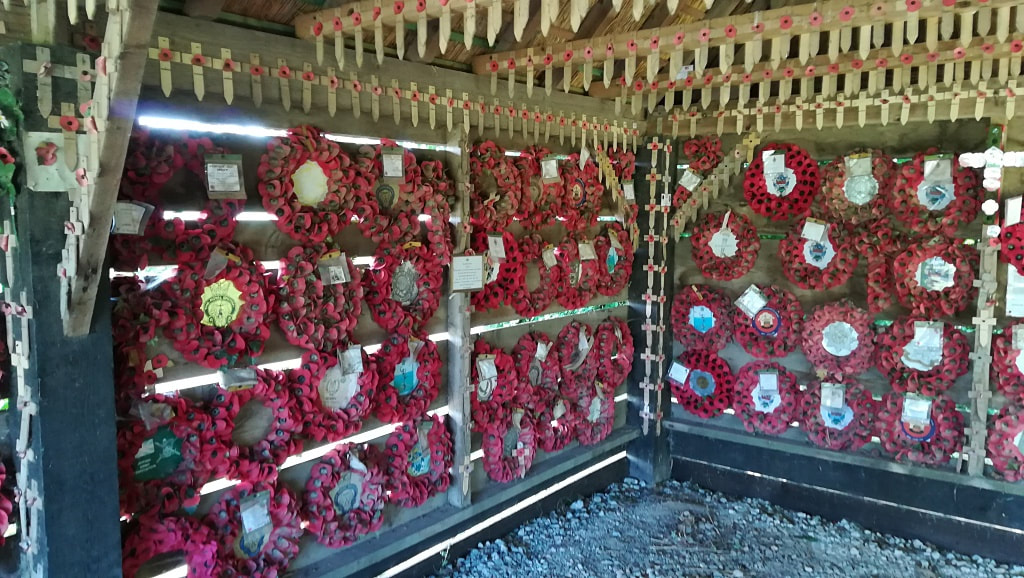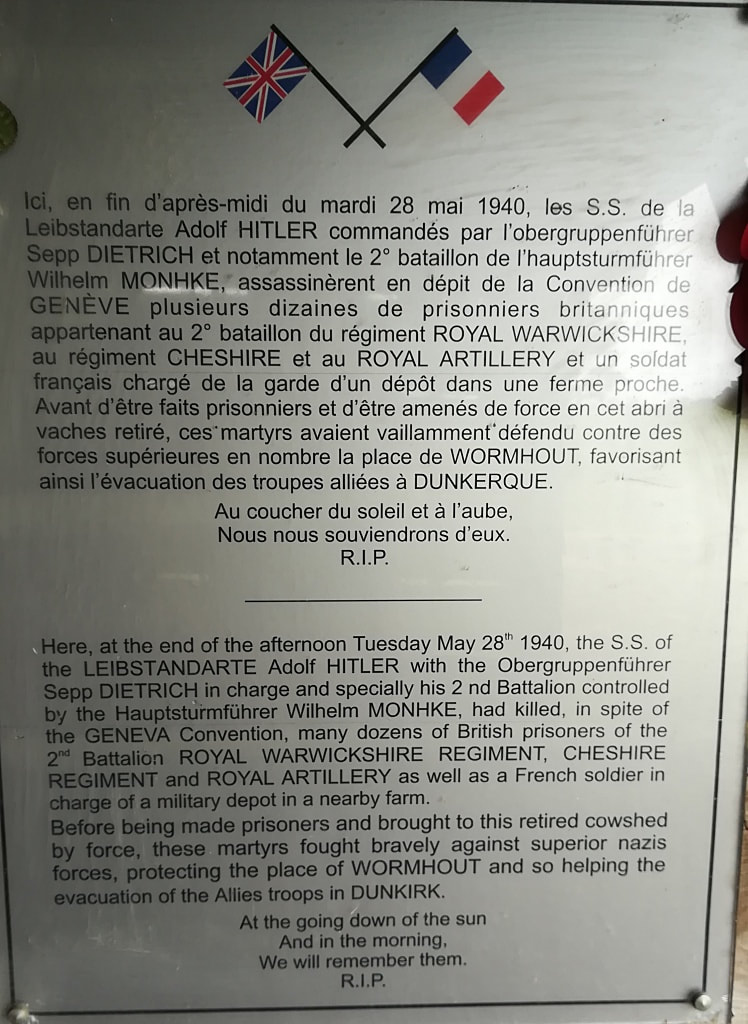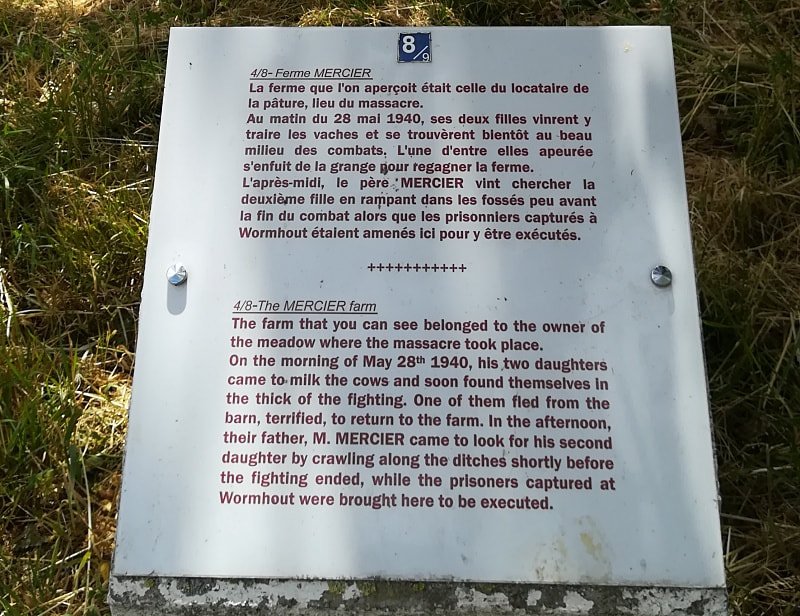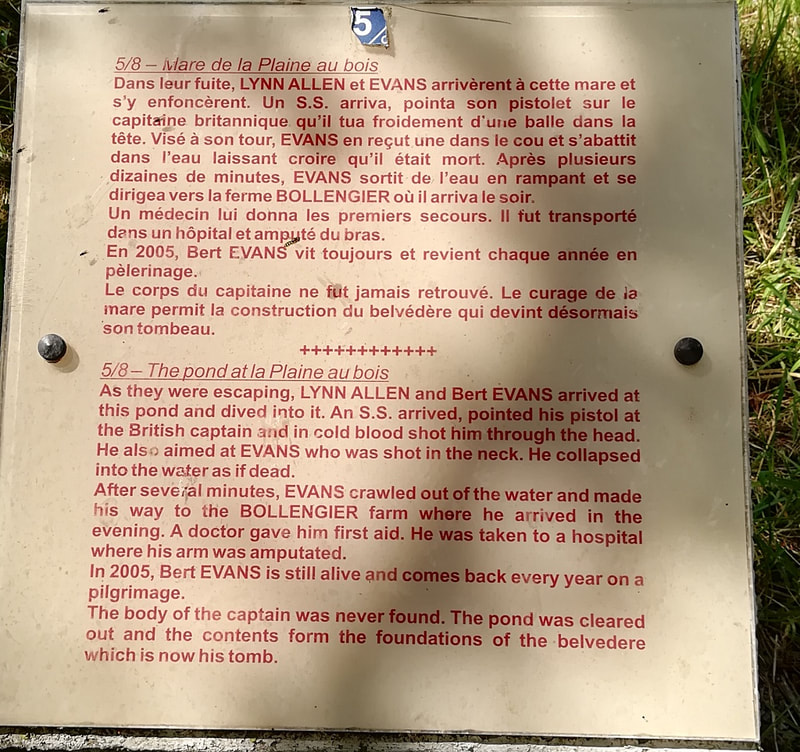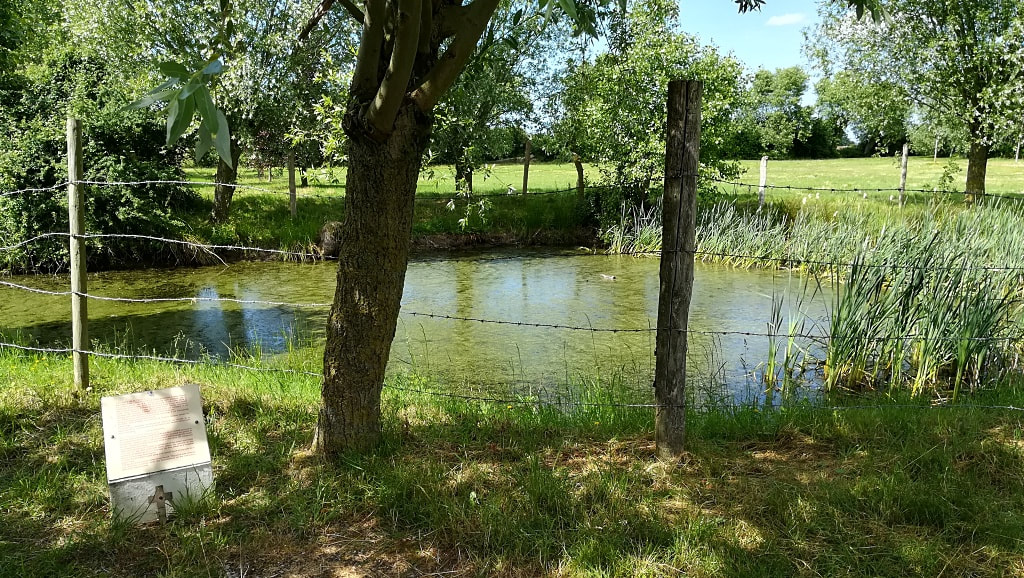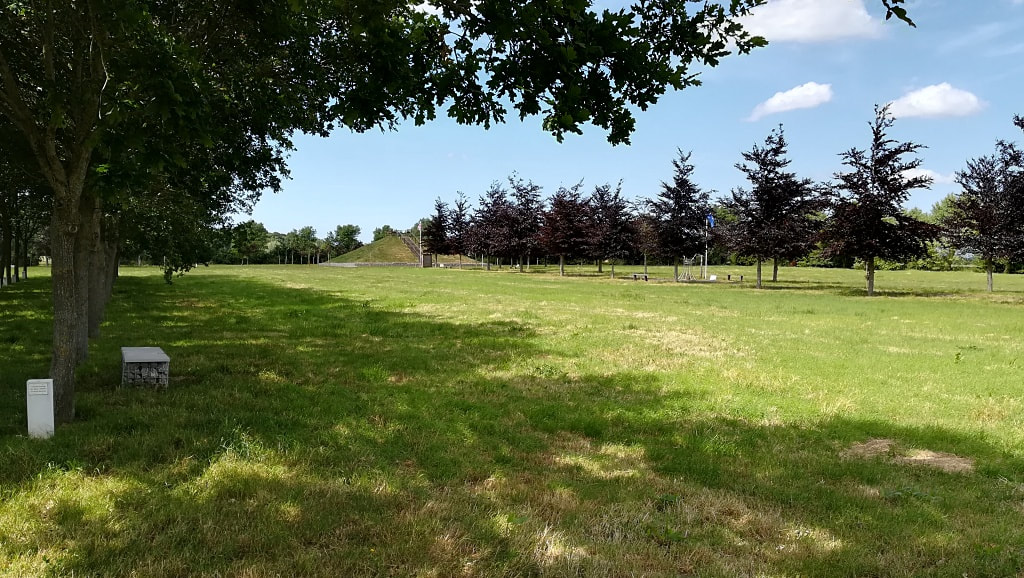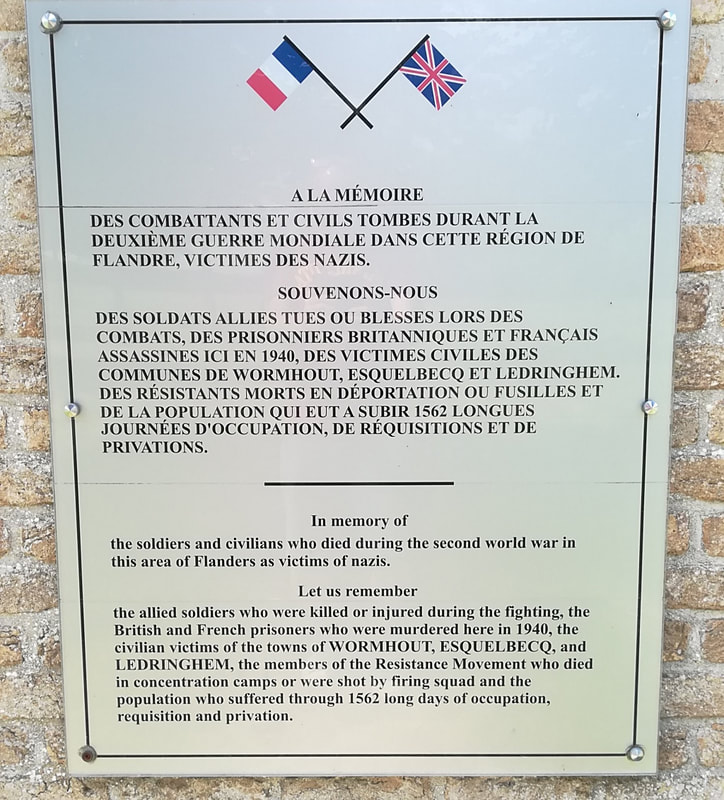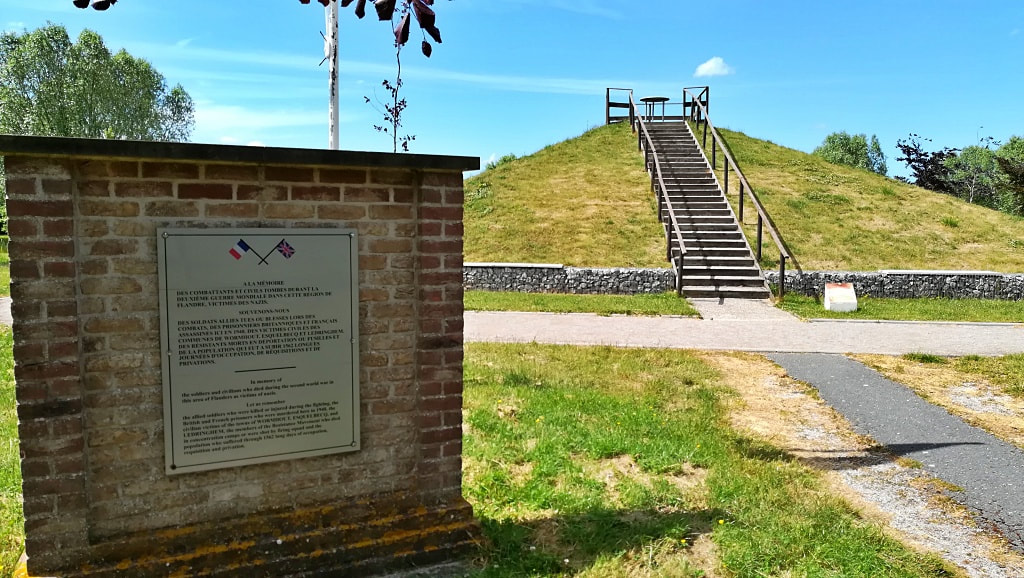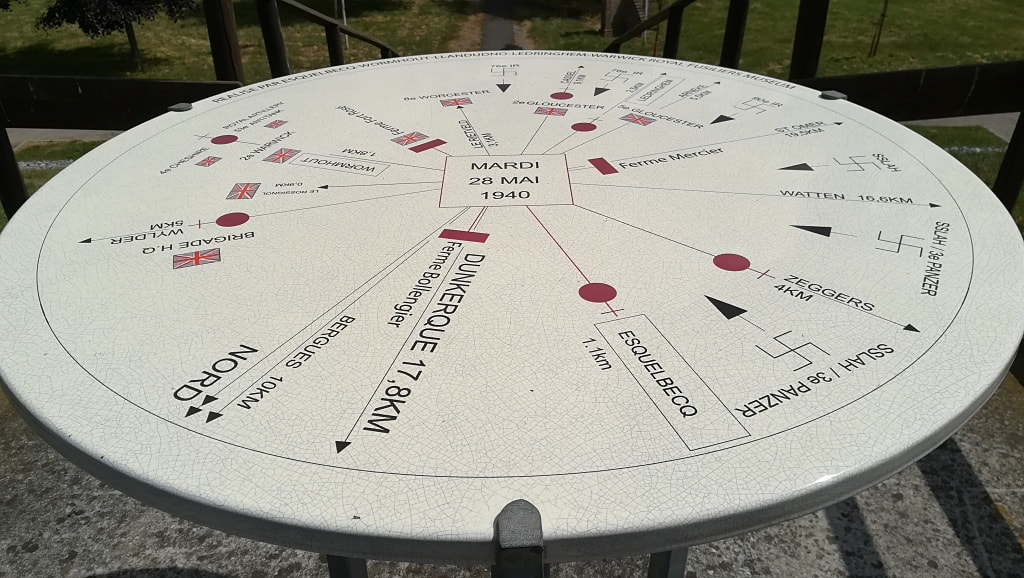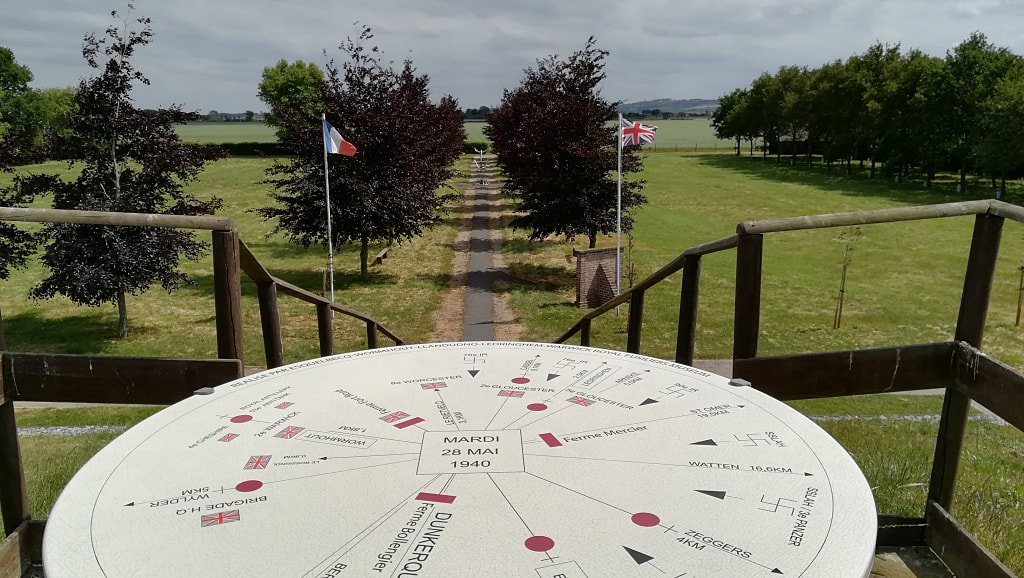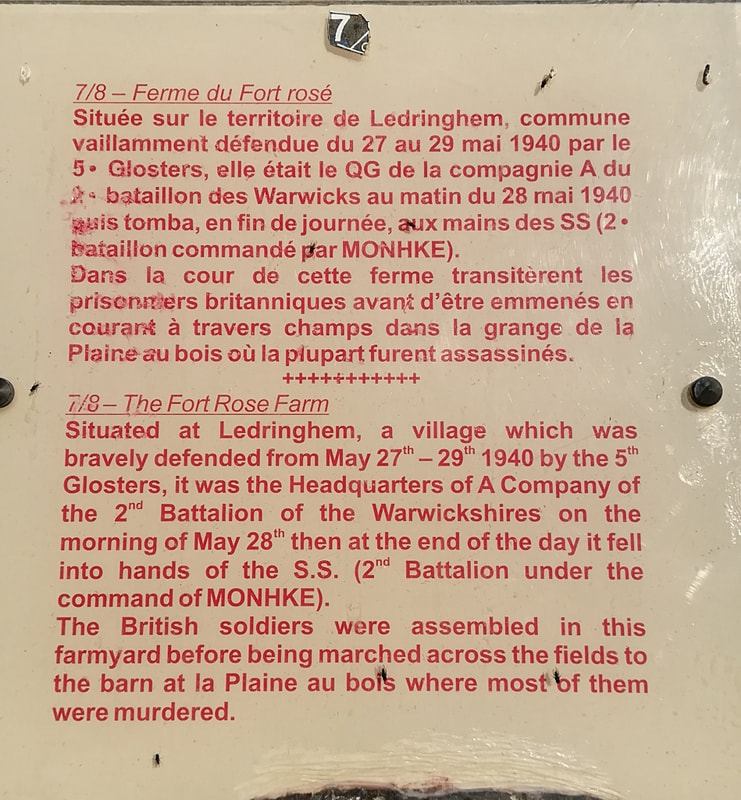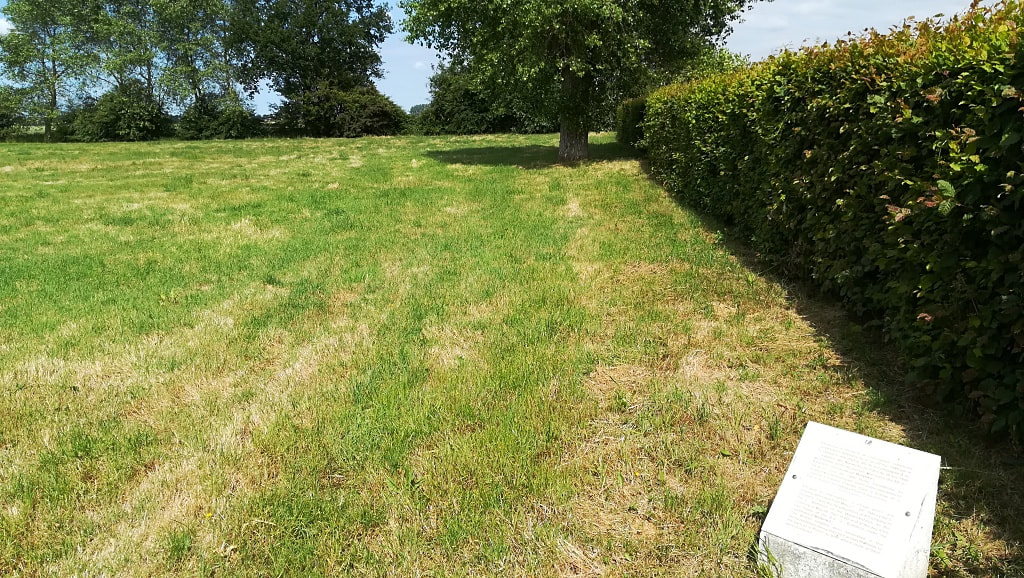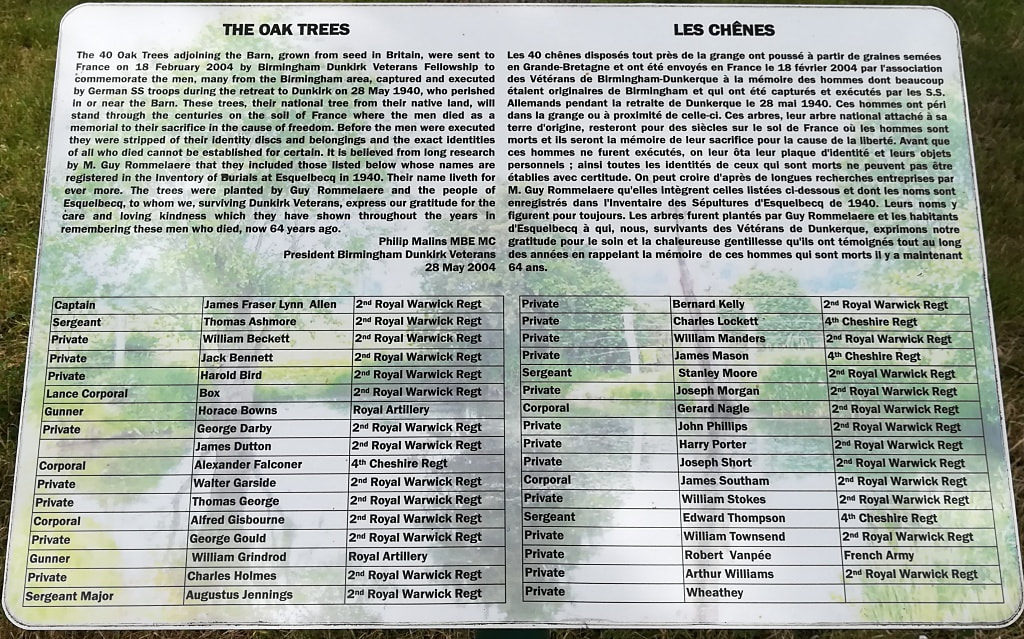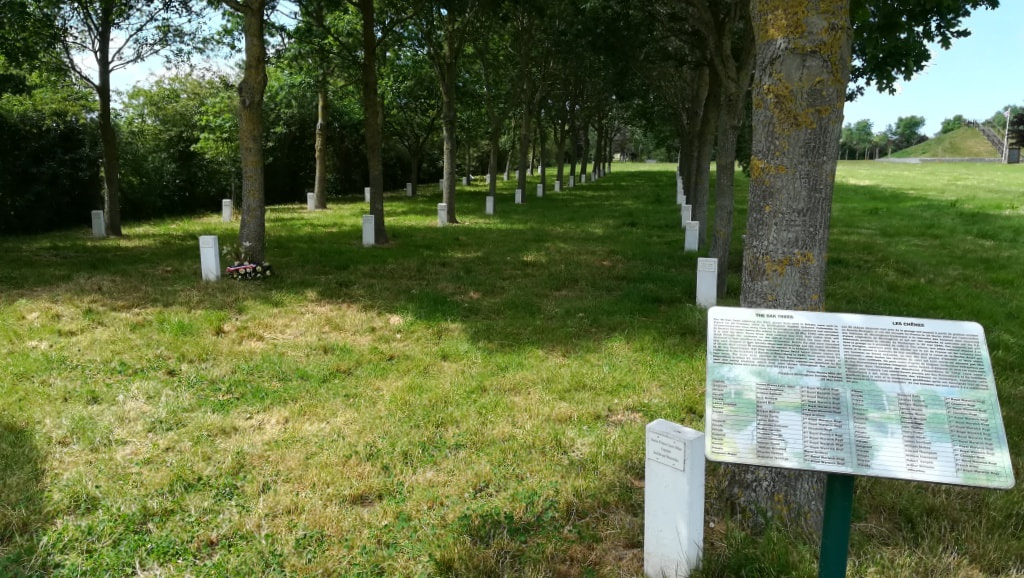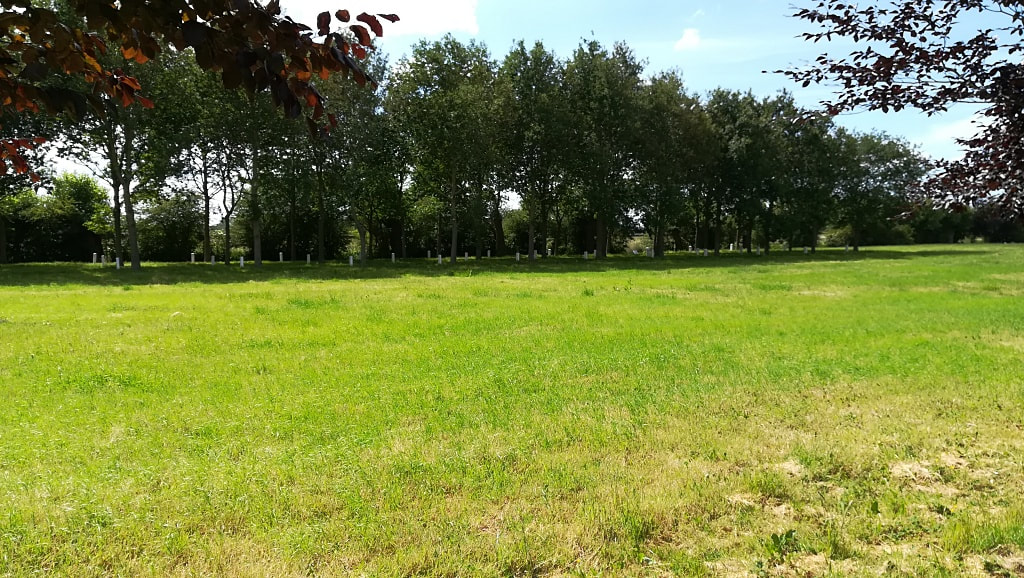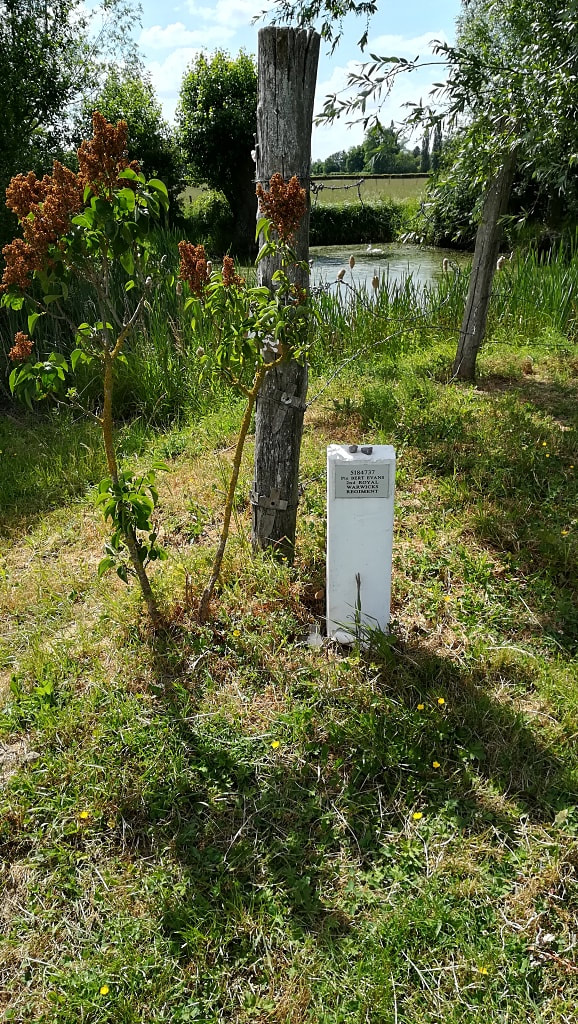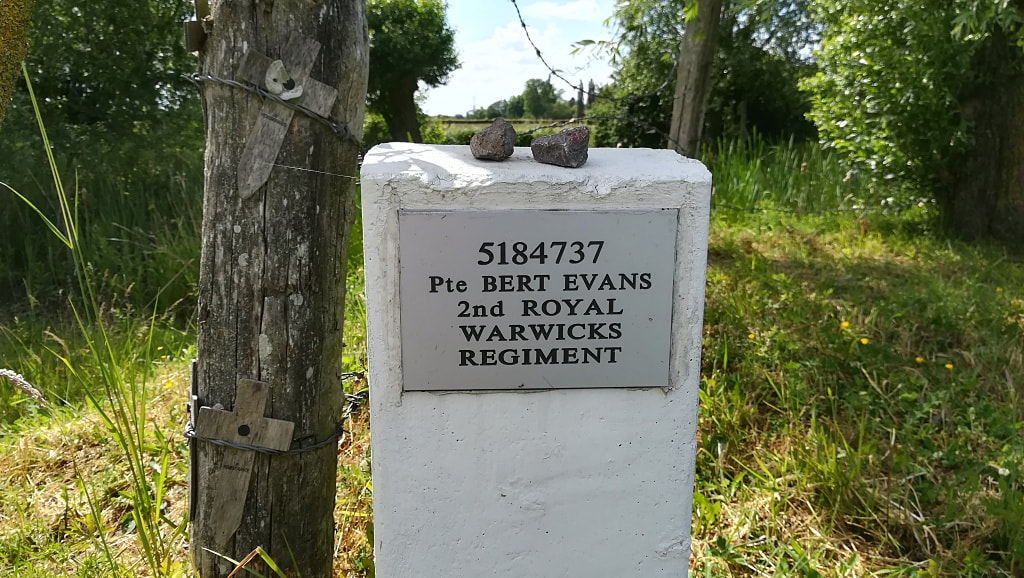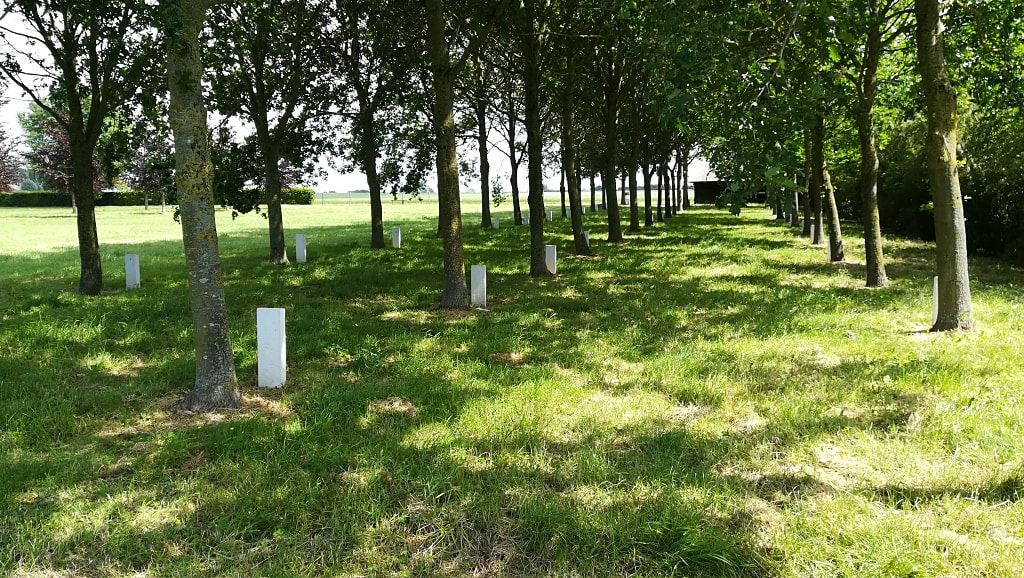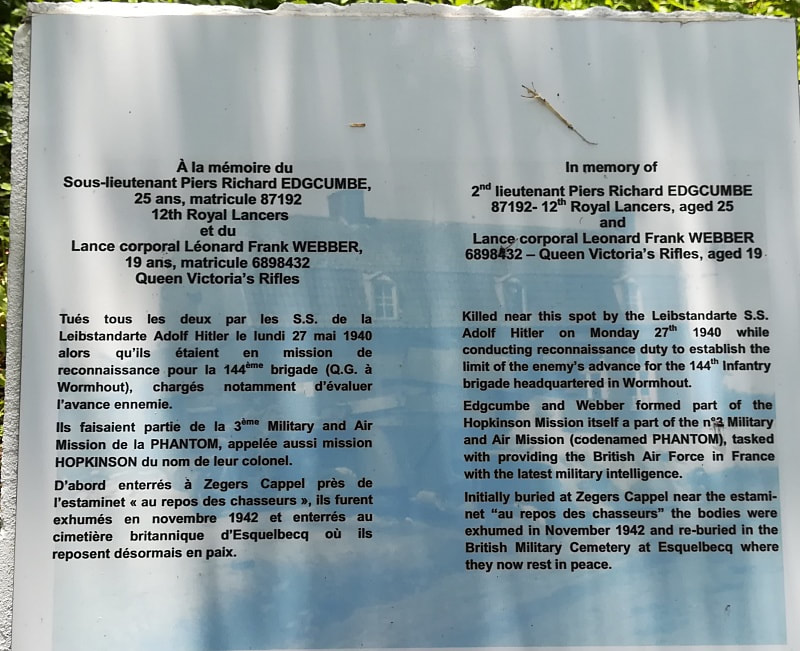LA PLAINE AU BOIS MEMORIAL SITE (WORMHOUDT MASSACRE)
Wormhout
Nord France
GPS Coordinates: 50°52'47.8"N 2°26'37.6"E
Location Information
The Plaine au Bois Memorial site (Wormhoudt Massacre) is locate between the villages of Esquelbecq and Wormhout. Leave the village of Esquelbecq and follow the signs for Wormhout on the D. 17. Just as you leave Esquelbecq turn right onto the Rue des Dunkirks Vétérans, and follow the signs.
Historical Information
The Wormhoudt massacre (or Wormhout massacre) was the mass murder of British and French POWs by Waffen-SS soldiers from the 1st SS Division Leibstandarte SS Adolf Hitler during the Battle of France in May 1940.
Information below provided by Nicholas Philpot
Commemorated at Esquelbecq Military Cemetery are 30 of the victims of the Wormhoudt massacre that occurred on 28 May 1940 during the evacuation from Dunkirk.
On previous days, the First Battalion of the Leibstandarte SS Adolf Hitler (formed in 1933 as Hitler’s personal bodyguard) had suffered a heavy defeat at the hands of the Royal Warwicks, the Royal Cheshires & the Royal Artillery; & moreover SS General Sepp Dietrich (C-in-C of the Sixth SS Panzer Army) had twice been attacked when being driven around the area in his car, wounded the second time, & — at some cost to the SS — rescued.
Orders were given to the Second Battalion (under Hauptsturmführer Wilhelm Mohnke) to attack the British HQ at Wormhoudt. When this was overrun, & ammunition exhausted, surrender was inevitable. The remaining British troops (almost 100) were rounded up, & in due course marshalled into an empty barn. Hand-grenades were then thrown in, but when the SS realised that 2 British NCOs (Sgt Stanley Moore & CSM Augustus Jennings) had thrown themselves on top of the grenades to shield others, forced out some of the troops to be shot, & sprayed gunfire on those remaining inside. The SS abandoned the scene, believing that there would be no survivors. 80 had died that day, a further 9 soon thereafter from their wounds, 6 survived, some of whom were able in due course to testify to the events.
Charge was taken of the scene 2 days later by German army medics (or a unit of the German Red Cross) who had been looking for wounded SS troops; & the dead soldiers were buried in a shallow grave nearby by the French. Investigation began in early 1944 soon after the news reached Britain, but despite extensive inquiries, it did not prove possible to bring Mohnke to book for his crime or for other atrocities alleged. He had surrendered in Berlin on 2 May 1945, & was held in Soviet captivity until 1955, dying in West Germany in 2001, aged 90.
On previous days, the First Battalion of the Leibstandarte SS Adolf Hitler (formed in 1933 as Hitler’s personal bodyguard) had suffered a heavy defeat at the hands of the Royal Warwicks, the Royal Cheshires & the Royal Artillery; & moreover SS General Sepp Dietrich (C-in-C of the Sixth SS Panzer Army) had twice been attacked when being driven around the area in his car, wounded the second time, & — at some cost to the SS — rescued.
Orders were given to the Second Battalion (under Hauptsturmführer Wilhelm Mohnke) to attack the British HQ at Wormhoudt. When this was overrun, & ammunition exhausted, surrender was inevitable. The remaining British troops (almost 100) were rounded up, & in due course marshalled into an empty barn. Hand-grenades were then thrown in, but when the SS realised that 2 British NCOs (Sgt Stanley Moore & CSM Augustus Jennings) had thrown themselves on top of the grenades to shield others, forced out some of the troops to be shot, & sprayed gunfire on those remaining inside. The SS abandoned the scene, believing that there would be no survivors. 80 had died that day, a further 9 soon thereafter from their wounds, 6 survived, some of whom were able in due course to testify to the events.
Charge was taken of the scene 2 days later by German army medics (or a unit of the German Red Cross) who had been looking for wounded SS troops; & the dead soldiers were buried in a shallow grave nearby by the French. Investigation began in early 1944 soon after the news reached Britain, but despite extensive inquiries, it did not prove possible to bring Mohnke to book for his crime or for other atrocities alleged. He had surrendered in Berlin on 2 May 1945, & was held in Soviet captivity until 1955, dying in West Germany in 2001, aged 90.

